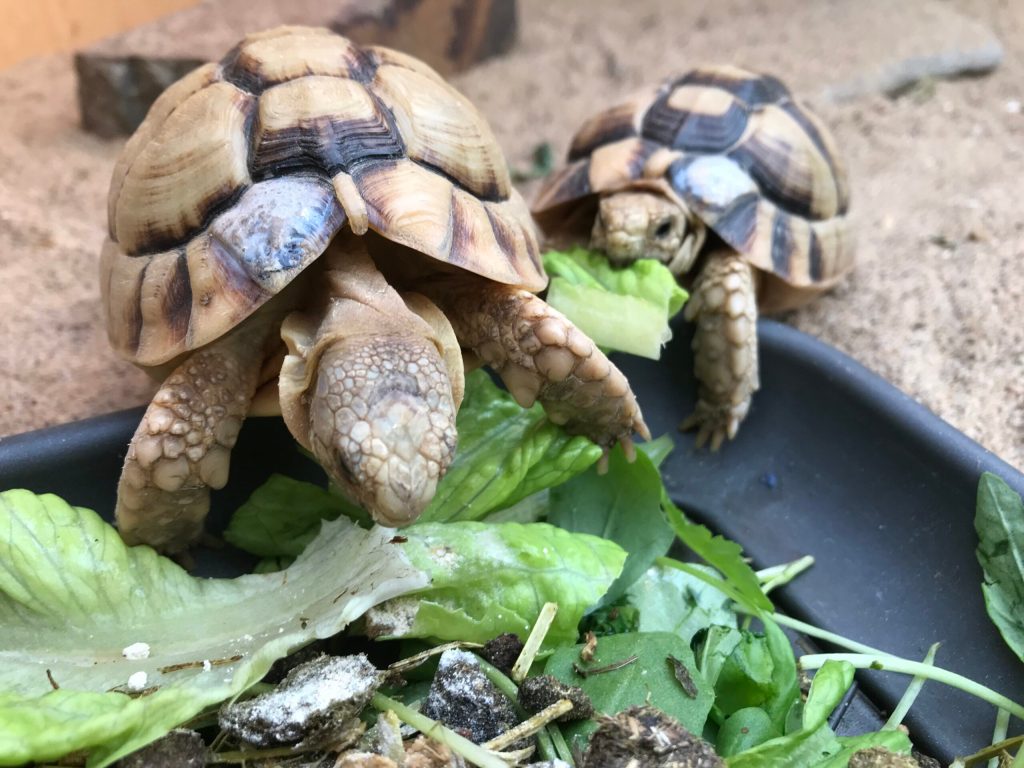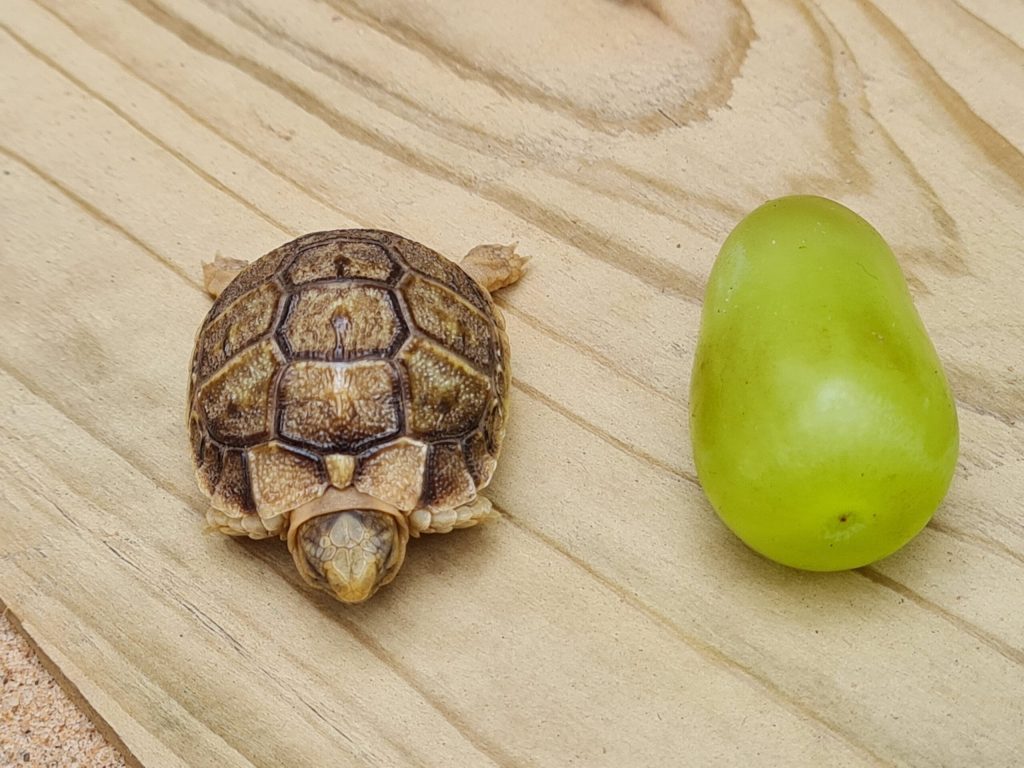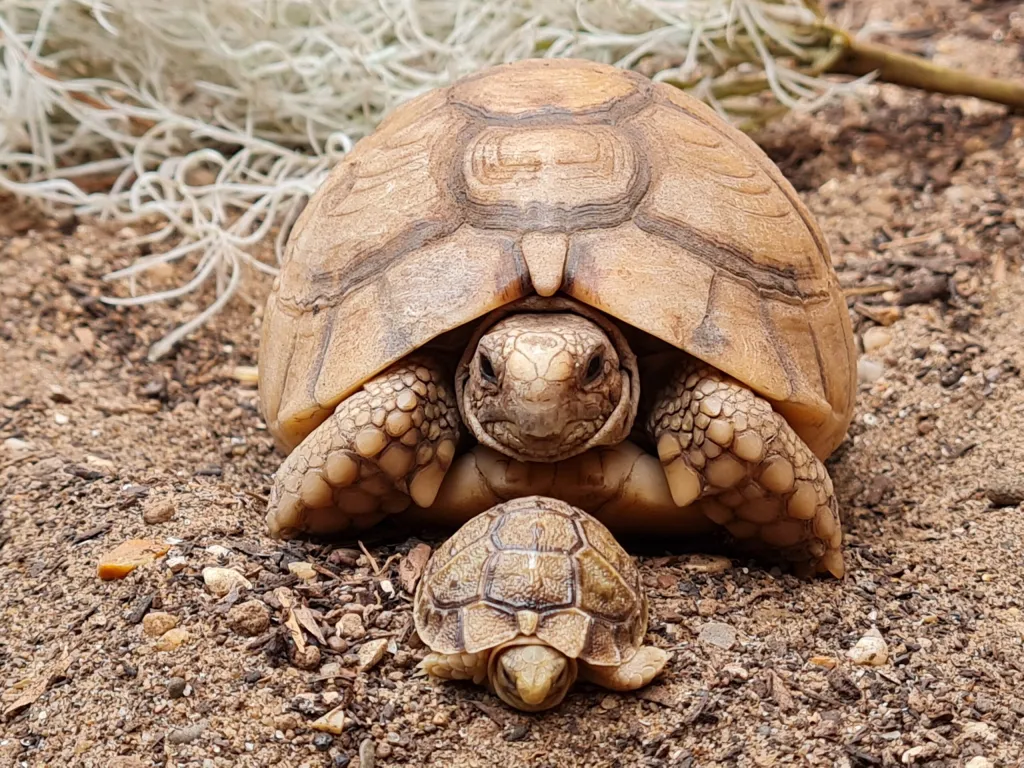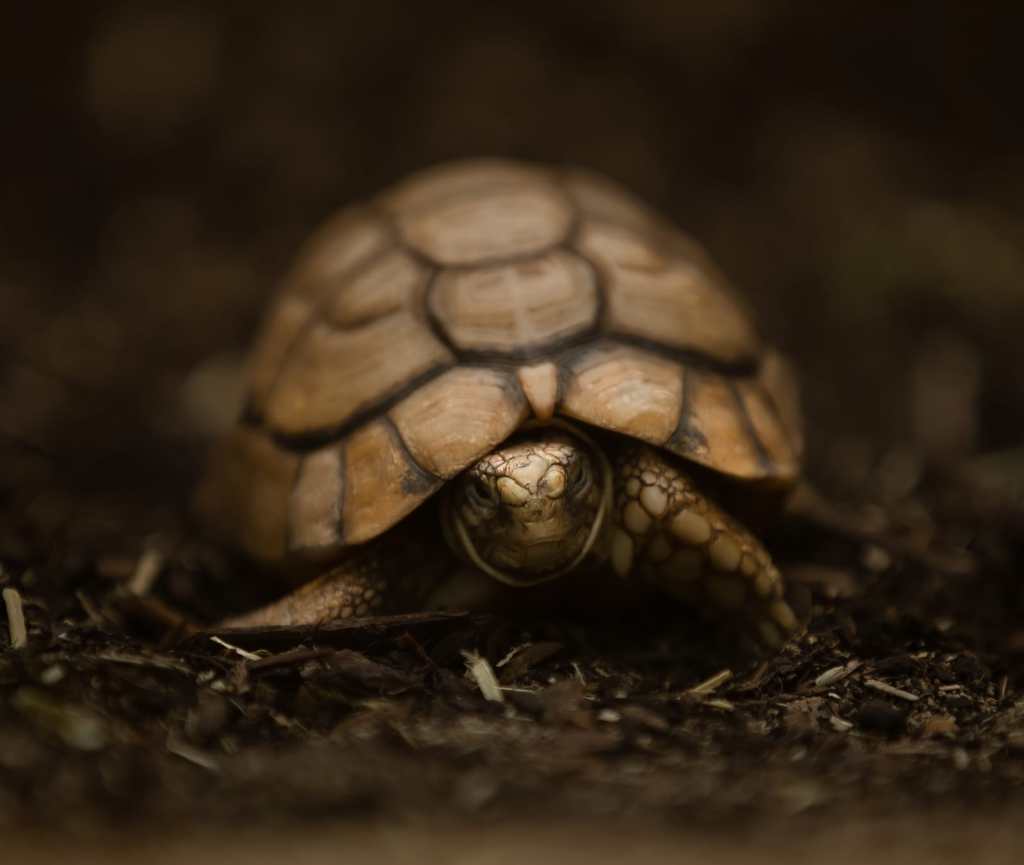CRITICALLY ENDANGERED – AND INCREDIBLY CUTE!
The Egyptian Tortoise:
The Egyptian tortoise is the second smallest tortoise species in the world and said to be no bigger than a baked potato! They can live for more than 20 years in captivity, however, their life span in the wild is currently unknown. They are herbivores and enjoy snacking on the flowers and leaves of plants found in the desert. They are classified as being critically endangered on the IUCN red list, which means that they are very close to extinction!

Where they live:
The Egyptian tortoise used to be found in Libya, Israel and Egypt, however they are now only found in Libya and are experiencing rapid population decrease. They live in desert conditions which are dry and arid, meaning water sources and plant growth are limited.
Our Egyptian tortoises live in the arid area of Plantasia Tropical Zoo, alongside our meerkats and bearded dragon!
Adaptations to living in the desert:
- Physical Adaptations: Due to their small size, they can rapidly adjust their internal body temperature to that of the external climate, which prevents them from overheating. Also, the pale colour of their shell and body prevents heat absorption, further avoiding overheating.
- Behavioural Adaptations: During the hottest part of the day, they seek shelter in burrows and only become active and forage during the coolest parts of the day, generally at dawn or dusk. Also, due to the lack of water sources in the desert, the Egyptian tortoise gets water by biting into plant stems and sucking out the moisture.
Threats:
- Illegal Pet Trade: One of the biggest threats to the Egyptian tortoise is the illegal pet trade. Despite efforts to make the capture and selling of these tortoises illegal, it still occurs frequently, most likely due to their desirable small size and rarity. Furthermore, in Libya, the one place where these tortoises are still found, there is no legislation against their capture and selling, leaving this species even more vulnerable to extinction.
- Habitat Destruction: The Egyptian tortoise has been subject to major habitat loss through many anthropogenic pressures. As the demand for agricultural related resources increases, more and more land gets turned into livestock farming and ranches, which leaves the Egyptian tortoise with less and less land. Additionally, the construction of roads and railroads not only further depletes the tortoise’s habitat, but also increases the risk of injury from passing vehicles.
- Low Reproductive Rate: Due to Egyptian tortoises having a low annual reproductive rate, which means they don’t lay many eggs per year, they are very sensitive to population changes. This means that when their population decreases, they do not produce enough babies to stabilise the population, resulting in a further population decline.
The Story of Our Tortoises:
Our Egyptian tortoises at Plantasia Tropical Zoo came to us as a result of the illegal pet trade. They were smuggled in from Libya in potato sacks, alongside many other Egyptian tortoises! Luckily, they were seized at an airport in Italy and temporarily placed at the Bioparco in Roma, before they finally made their way to us! Here at Plantasia Tropical Zoo, we are involved in a breeding programme which aims to increase the population of this diminishing tortoise species. This programme has been highly successful here, with 4 babies being born just in the last month! As previously mentioned, the Egyptian tortoise is the second smallest species of tortoise in the world and their babies really live up to this title, as they are about the size of a £1 coin when they are born!

We hope you enjoyed learning about our cute little Egyptian tortoise, and we hope you come to visit them soon here at Plantasia Tropical Zoo!
By Student Zookeeper Amy Nash


